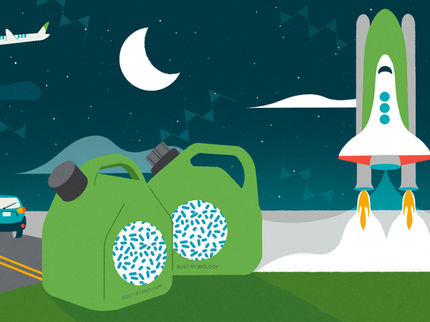Unveiling a new class of synthetic fuels
Will they revolutionize the clean transport of the future?
Researchers from RWTH, the Max Planck Institute for Chemical Energy Conversion, and ETH Zurich have now presented groundbreaking advancements in synthetic fuels. Their study, which has the potential to revolutionize clean transportation, has been published in Nature Energy under the following title: “Towards Carbon-Neutral and Clean Propulsion in Heavy-Duty Transportation with Hydroformylated Fischer-Tropsch fuels.”
The shift towards sustainable transportation necessitates the development of energy carriers that meet the stringent requirements of modern applications. Synthetic fuels emerge as a highly promising solution for transporting heavy goods. HyFiT fuels, as presented in this study, address the central challenges faced by current synthetic fuels.
Closing the Carbon Cycle: HyFiT fuels offer a flexible solution for closing the carbon cycle by utilizing either biomass or carbon dioxide as raw materials. This process employs scalable and mature technologies, ensuring a sustainable and versatile approach to fuel production.
Compliance with Fuel Standards: Experimental results validate that HyFiT fuels comply with global fuel standards and are compatible with existing vehicle infrastructure. Their compatibility with established sealing materials enables seamless integration into the current vehicle fleet, paving the way for immediate and broad adoption.
Reduction of Pollutants: Testing on a light commercial vehicle revealed that HyFiT fuels produce significantly fewer particles and nitrogen oxides during combustion than conventional diesel. This marks a significant step toward reducing vehicular emissions and improving air quality.
Net Zero Emissions: A well-to-wheel life cycle assessment demonstrated that HyFiT fuels can achieve net-zero greenhouse gas emissions and have a favorable environmental profile in various parameters. This makes them a solid complement to electrification, especially for heavy-duty long-distance transport.
This pioneering development in synthetic fuels is a testament to the power of interdisciplinary research and collaboration. It results from the innovative “Fuel Design Process,” created at RWTH’s “Fuel Science Center” Cluster of Excellence, and underscores the potential of collaboration in achieving sustainable energy solutions.
Original publication
Simon Voelker, Niklas Groll, Marvin Bachmann, Leonard Mueller, Marcel Neumann, Theodoros Kossioris, Paul Muthyala, Bastian Lehrheuer, Marius Hofmeister, Andreas Vorholt, Katharina Schmitz, Stefan Pischinger, Walter Leitner, André Bardow; "Towards carbon-neutral and clean propulsion in heavy-duty transportation with hydroformylated Fischer–Tropsch fuels"; Nature Energy, 2024-7-8
Most read news
Original publication
Simon Voelker, Niklas Groll, Marvin Bachmann, Leonard Mueller, Marcel Neumann, Theodoros Kossioris, Paul Muthyala, Bastian Lehrheuer, Marius Hofmeister, Andreas Vorholt, Katharina Schmitz, Stefan Pischinger, Walter Leitner, André Bardow; "Towards carbon-neutral and clean propulsion in heavy-duty transportation with hydroformylated Fischer–Tropsch fuels"; Nature Energy, 2024-7-8
Organizations
Other news from the department science

Get the chemical industry in your inbox
By submitting this form you agree that LUMITOS AG will send you the newsletter(s) selected above by email. Your data will not be passed on to third parties. Your data will be stored and processed in accordance with our data protection regulations. LUMITOS may contact you by email for the purpose of advertising or market and opinion surveys. You can revoke your consent at any time without giving reasons to LUMITOS AG, Ernst-Augustin-Str. 2, 12489 Berlin, Germany or by e-mail at revoke@lumitos.com with effect for the future. In addition, each email contains a link to unsubscribe from the corresponding newsletter.





























































